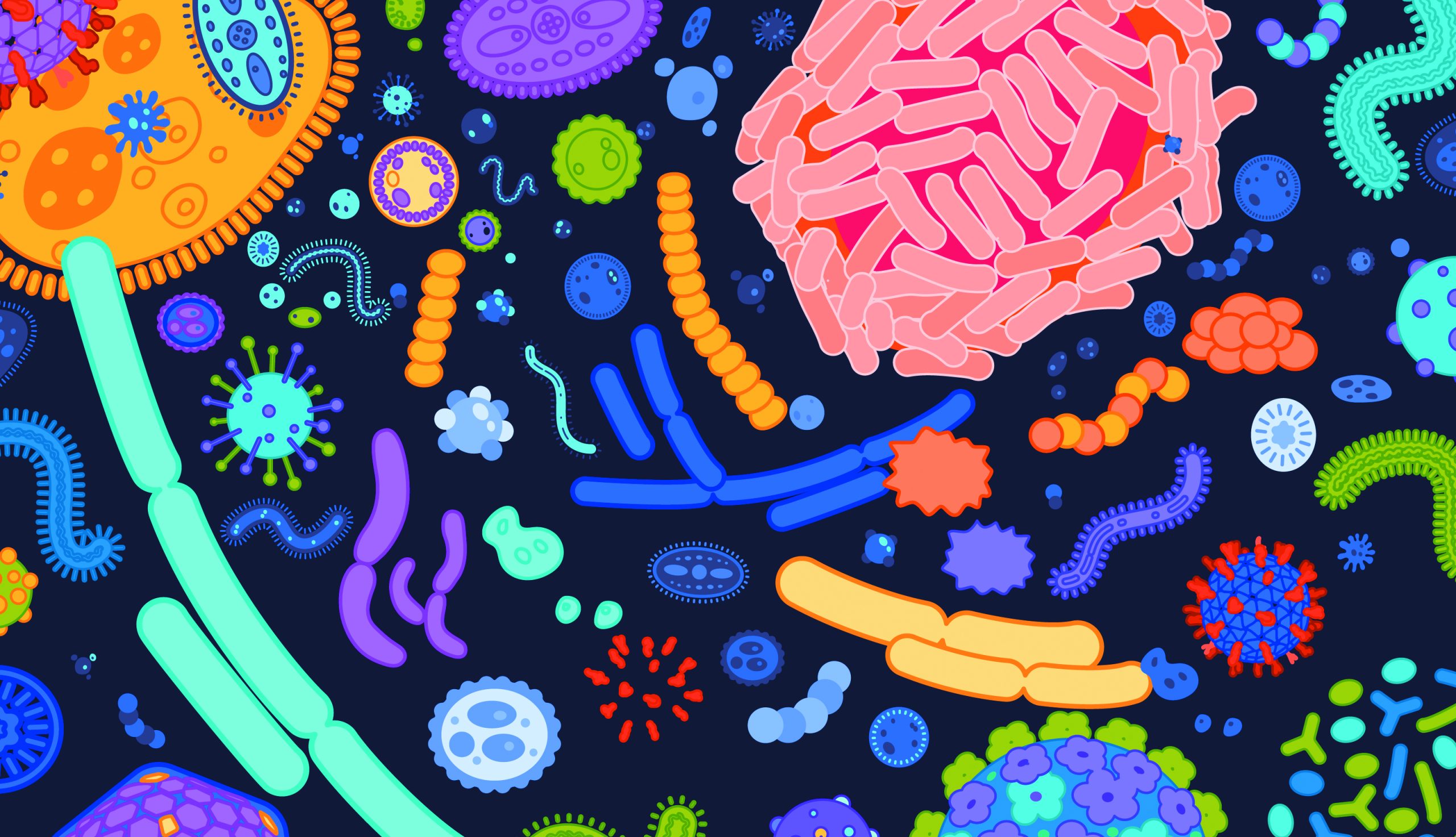By Elizabeth A Dorn, M.S.N., CRNPAhhh, that confection of hardened sugar or dried fruit with a crunchy, sparkly sugar coating.
Not meaning to be a grinch here, but what are the chances those little ones brushed their teeth before they settled in for their long winter’s nap?
So, this month’s message, if you haven’t guessed yet, has to do with dental health. Children
(and adults) have just finished off their Halloween candy and now are about to indulge in a plethora of dental caries inducing extravagances. Far be it from me to spoil one of the season’s most gratifying experiences – the exchanging and sharing of treats, however, we can take a look at which sweets are most likely to cause issues with dental health.
Back when I used to bring my lunch to school I recall a “friend” telling me that the raisins that my mom lovingly packed for me were hurting my teeth more than the candy her mom packed for her. Not willing to believe such a tale, I did some digging (yes, I was a research geek even in middle school.). And it was true!!! Although raisins, as a whole food, contain natural sugar and fiber, which render them a healthier snack than candy, which contains added, artificial sugar, raisins and other dried fruits adhere to your teeth long after you’ve chewed and swallowed them. What’s so bad about sugar? After all, our bodies need sugar for energy and growth. However, sugar fosters cavity-causing bacterial growth on the teeth, which can cause not only cavities, but periodontal disease, leading to other health problems. Bacteria create acids that cause enamel destruction, exposing the nerve within the tooth, which can cause extreme sensitivity to cold (breathing cold air) and heat (consuming hot soup.)
Here’s what I found regarding the most damaging and least detrimental candy and some tips for how to minimize the damage that occurs with overindulgence.
Dentists have published lists indicating what treats are on their list for causing the most problems with teeth. These include
*Candy corn, whose sticky sugars cling to and in between teeth for an extended period, giving that sugar more opportunity to damage teeth.
*Taffy, which can pull a loose filling straight out of place! This includes those favorites, tootsie rolls, whose sugar, like that of candy corn, can remain on even brushed teeth for a loooooong time.
- Caramels, toffees and nougats, which can do both of the above. Yes, even the caramel surrounding that delicious apple!
*Lollipops and hard candies, which basically bathe the teeth in a sugary solution for extended periods of time. Lollipops can also cause chipped or broken teeth in those who can’t resist biting into them (to find the tootsie roll or gum center?!)
*Sour candy, which harms teeth in two ways. It’s coated in sugar and is very acidic. High acidity can very damaging to teeth as the acids break down tooth enamel, leaving teeth more vulnerable to tooth decay and breakage.
*Jawbreakers are aptly named. Crunching down on these extremely hard candies can cause damage not only to teeth, but also injury to the jaw joint (TMJ) that allows you to open and close your mouth.
*Popcorn may look sweet and innocent in their bowls, but cause tooth breakage at an alarming rate.
Being realistic, dentists will tell you that the best candy for your teeth is no candy at all, but, they do acknowledge that there are some candies that are less damaging to dental health. These include
*Chocolate, which easily washes off teeth, meaning it doesn’t stick around to cause cavities or other types of tooth damage. Dark chocolate is the best type since it contains less sugar, and some research has indicated that it contains compounds that can help harden tooth enamel and provide plaque-fighting benefits
*Sugar free candy is considered beneficial because, obviously, it doesn’t contain the sugar that promotes bacterial growth, which causes cavities. It also stimulates saliva production, which washes the mouth of bacteria and plaque that causes tooth problems. It bears mentioning, though, that if you bite down on a hard sugar free candy you can still cause tooth breakage, which may expose the inner surface of the tooth.
*Sugar free gum is considered beneficial for tooth health, particularly if it contains zylitol. Chewing gum stimulates saliva, which can rinse away problem-causing acids and bacterial in the mouth
*Nuts not only contain protein and fiber that are beneficial to overall health, but also tend to break up the sticky parts of a candy bar and break down the biofilm that can form on teeth.
What about beverages?
Drinks that are acidic soften tooth enamel, causing teeth to be more sensitive and vulnerable to damage. Beverages that are high in both acid and sugar have the potential to be doubly harmful. Here’s a breakdown of how some beverages affect your teeth
• Wine is an acidic beverage, and, as such, affects the enamel, but can also cause discoloration and staining of teeth. White wine is more acidic than red.
• Hops, which are a common component of beer, may have some positive effects on oral health and cavity protection, though more research is needed before beer can be considered beneficial to dental health.
• Spirits tend to have a drying effect, minimizing saliva, which is one of the mouth’s natural defenses against damage. Alcohol also has varying degrees of acidity, which causes dental harm, which is compounded when people sip their drinks slowly, giving the alcohol more time to do damage.
• Water is helpful to teeth, since it helps rinse bacteria from teeth and increases salivary flow, which protects from dental decay. A study from Melbourne University found that water actually led to a hardening of teeth enamel!
• Sparkling water has a high acidity level, which gives it an even greater erosive potential than orange juice.
• Coffee without sweetener has recently been found in a Dental Sciences study of 1000 coffee drinkers to help prevent cavity development. When sweetener was added, though, the anticavity action was totally minimized.
• Milk, which is considered an alkaline (non-acid) beverage, has long been considered to be beneficial to dental health ( I certainly grew up with the constant advice to drink my milk for strong teeth!) The calcium in milk inhibits attachment and growth of cavity-forming bacteria
• Sodas, which contain anywhere from 4.9 gm to 77 gms of sugar in a can/bottle, obviously are harmful to dental health. Even sugar free sodas contain acids that weaken the enamels, increasing the likelihood of tooth breakage
Both regular and sugar-free sodas contain acids, which attack the teeth. With each swig of soda, the damaging reaction on the teeth lasts for about 20 minutes. If you sip soda throughout the day, the teeth are under constant attack.
• Fruit juices are concentrated, and as a result expose the teeth to a lot more acid than if you were to eat the fruit in its natural form. Diluting fruit juice with water (50% juice, 50% water) lessens the damage fruit juice can cause to teeth
• Fruit punch beverages are typically not actual juice. They are mostly sugar or high fructose corn syrup and are very acidic.
• Teas that are brewed typically are more alkaline, and so are not considered damaging to dental health, though excessive consumption can cause staining of the teeth. Green tea may even have some positive effects on gym health and decay prevention. Iced teas, though, are usually very acidic, and some popular brands of brewed iced teas have been shown to be as harmful as most sodas.
There are actions you can take to minimize effects that damaging beverages can have on the teeth.
*Drink in moderation. Don’t have more than one soft drink each day. Just one will do enough damage. - Drink quickly. The longer it takes to consume a dental damaging beverage, the more time it has to wreak havoc on the teeth. The faster you drink, the less time the sugars and acids have to damage the teeth (Just don’t use this as an excuse to drink twice as many such beverages!)
*Consider using a straw, which will lessen contact time with the teeth.
*Rinse your mouth with water after drinking such a beverage. Flushing the mouth with water will help wash away some remaining sugars and acids and slow their attack on your teeth.
*Don’t brush immediately after drinking anything that could damage the teeth. Brushing on enamel that’s already been softened by the beverage could do more harm than good. Wait 30 minutes after drinking before brushing. - Avoid such drinks before bedtime. The sugars may contribute to keeping you awake, and it, as well as the acid, will have all night to attack your teeth.
Dentists recommend twice yearly visits and cleanings to ensure that you are checked not only for cavities, but for evaluation regarding other potential issues. Other measures dentists advise include
Brushing twice a day for two minutes. Don’t overbrush or brush too hard. Brushing for longer than four minutes a day total can lead to wearing down of the enamel that protects the teeth. Enamel is strong, but if your toothbrush looks like someone sat on it, you’re applying too much pressure and could cause a breakdown in this protective layer.
Flow daily to loosen the particles that brushing misses and prevent the buildup of plaque and tartar, which can cause periodontal disease, bad breath and discolored teeth.
Periodontal diseases can contribute to several systemic diseases, such as cardiovascular disease, oral and colorectal cancer, gastrointestinal diseases, respiratory tract infections and pneumonia, adverse pregnancy outcomes, diabetes and insulin resistance and Alzheimer’s disease.
So, don’t think you have to completely forego those pretty ribbon candies or gaily wrapped chocolates that are part of your holiday traditions. Just remember that moderation is key and your teeth are meant to last a lifetime!


